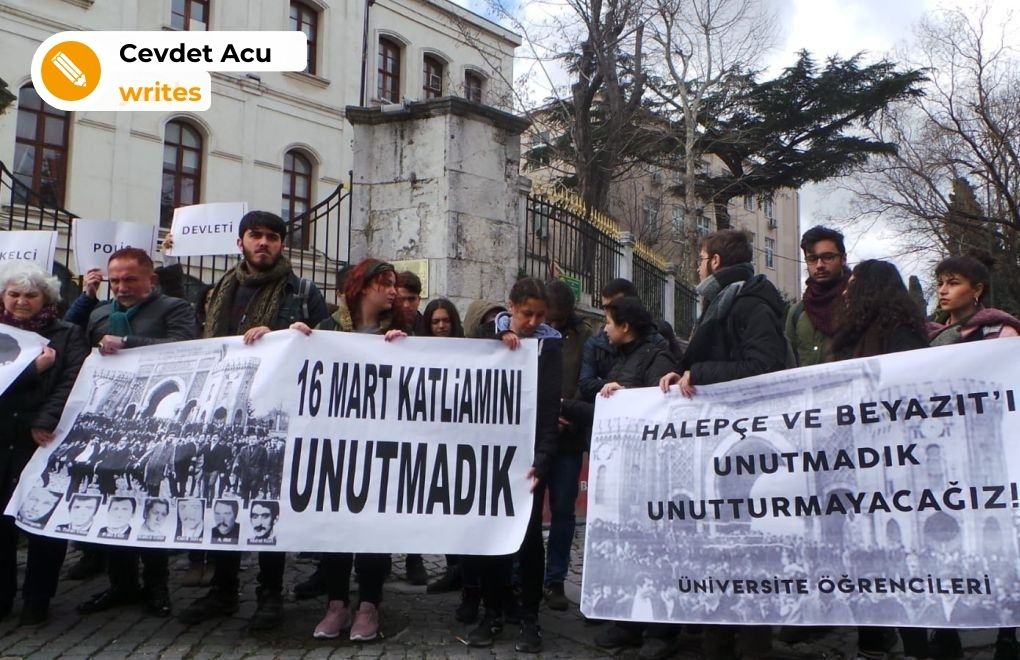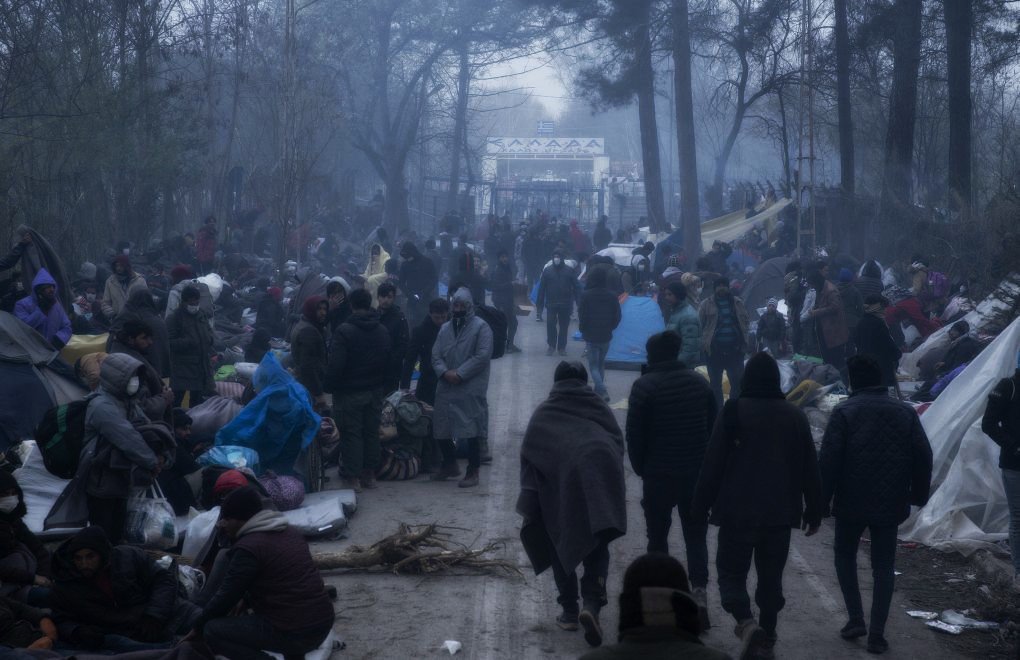Photo: AA
Refugees are given limited opportunities to speak directly about their experiences and suffering; mass media often plays a central role in framing the refugee crisis. Studies point out that the language used in mass media shape individuals' perception against displaced people.
Mass media can either reinforce the "criminalised" image of refugees, which leads to hate speech and hostility against refugees or, on the contrary, they may help to reduce the conflict between refugees and locals, which provides a peaceful environment for all. This essay argues Western media's double standards for refugees based on the Ukrainian refugee crisis recently.
Mass media in Europe and the US have reported the Ukrainian refugee crisis since the beginning of the conflict on the 24th of February 2022 between Russia and Ukraine. However, most media coverage in these countries reflects the deep-rooted, racist policy against non-Europeans. One can come across many examples to support the previous statement when researching the Western mass media handling of the Ukrainian crisis.
"People like us"
To illustrate: Kelly Cobiella, an NBC News correspondent based in London said: "Just to put it bluntly, these are not refugees from Syria, these are refugees from neighbouring Ukraine. That, quite frankly, it is part of it. These are Christians, they are white, they're... um... 'very similar to the people that live in Poland'. Similarly, Charlie D'Agata, CBS News foreign correspondent, made a discriminatory comparison between the crisis in the European land and non-European countries, saying: "This isn't a place, with all due respect, like Iraq or Afghanistan ... This is a relatively civilised, relatively European -I have to choose those words carefully too- city, where you wouldn't expect that or hope that is going to happen."
Similar discrimination was highlighted on France's BFM TV, Philippe Corbé, a journalist, said: "We're not talking here about Syrians fleeing the bombing of the Syrian regime backed by Putin. We're talking about Europeans leaving in cars that look like ours to save their lives." Finally, Daniel Hannan, the Daily Telegraph, reported: "Ukraine is a European country. Its people watch Netflix and have Instagram accounts... War is no longer something visited upon impoverished and remote population."
One can see that there are many more orientalist approaches in the mass media within Europe and the US that discriminate against non-Europeans while they report the Ukrainian refugee crisis.
Western media statements above reveal the racism, explaining that Ukrainian refugees are civilised, unlike refugees from the Middle East who have been stigmatised as uncivilised. One of the common statements of the Western media above is not the solidarity of media coverage towards Ukrainian refugee crisis; it is the Western media's horrific double standards based on skin colour, ethnic identity, and religion against non-Europeans. The media statements above show that refugees only matter if they are Christians and White. This view suggests that your religion identity and skin colour can be your destiny as they are important factors to have Western media "empathy."
Negative stereotypes
There is a double standard that has been present in the Westen media for years on issues relating to displacement and the representation of non-European refugees. Mass media in European countries often use negative stereotypes against non-European refugees such as "illegals", "uneducated", "welfare-dependent", and "threat", which increases the conflict between refugees and locals in the region.
Whenever I think about the response of Western media against non-European displaced people, I remember the Hungarian camerawoman, Petra Laszlo, who kicked a Syrian father who was holding his child at the Serbian border in 2015. This kick reflects the double standard of mass media coverage against non-European displaced people on the continent.
It is great that Western media pay attention to the Ukrainian refugee crisis to raise an awareness to reduce the vulnerability of the displaced people. However, it is a hypocrisy that Western media use chauvinistic concepts to refer to non-European displaced people, while the same mass media embrace Ukrainian refugees. Western media should report the stories of displaced people or the refugee crisis regardless of refugees' race, religion, gender, and nationality. They must stop using orientalist and racist discourses while reporting the Ukrainian refugee crisis.
In addition, the Special Rapporteurs on contemporary forms of racism should investigate the Western media reports about racial and ethnic discrimination discourses in dealing with those fleeing the war in Ukraine, as the mass media is an important tool to shape people's attitudes at the age of globalisation.
We must always remember that atrocities start with discriminative words in the mass media; the despair we all feel for Ukranian refugees should be the same as the despair we feel for Syrians, Iraqis, Palestinians, Afghan, and Kurdish refugees. (CA/VK)




.jpg)


.jpg)
.jpg)


